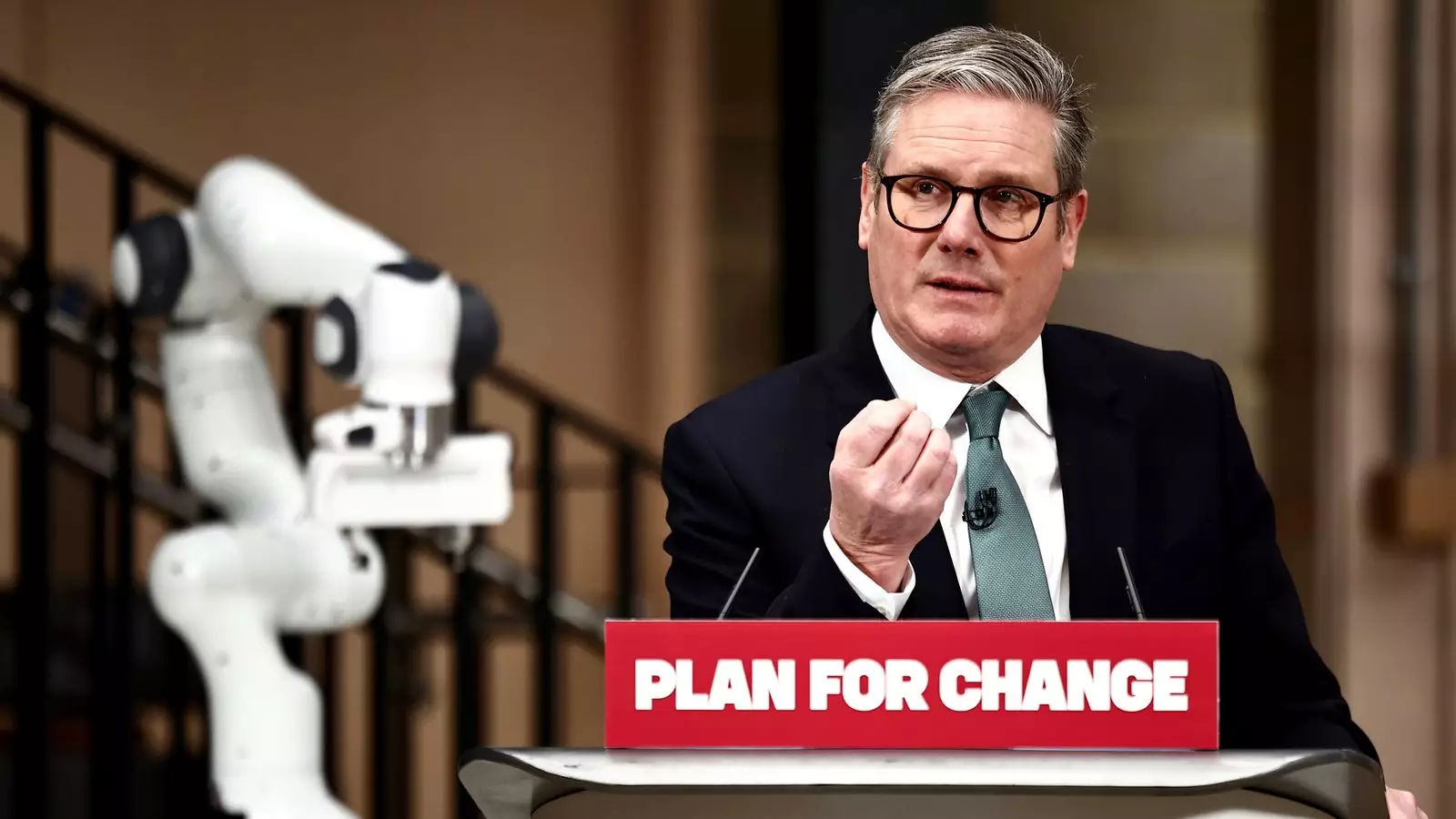As the British economy faces mounting pressure, concerns about government spending and fiscal policy are at the forefront of political discourse. Recent statements from Sir Keir Starmer highlight a critical moment in the nation’s financial landscape, as the Labour leader emphasizes the Ministry of the Treasury’s commitment to strict spending cuts amidst market volatility. With government borrowing costs experiencing a significant uptick—both 10-year and 30-year gilt yields reaching highs not seen since the late 1990s—challenges abound for policymakers and the public alike.
The rising costs of borrowing signal a possible reckoning for the state, as the Chancellor finds herself confronting the limits of self-imposed fiscal rules. As sterling weakens, trading at $1.21, the implications for the economy grow even more salient. The public sentiment seems to align with the notion that effective economic governance has never been more urgent.
In stark terms, Starmer has not shied away from describing the current economic environment as one fraught with challenges that were “inherited” from the Conservative administration. By framing his government as tasked with the monumental job of heritage reform, he communicates a sense of responsibility while attempting to distance his party from the perennial issues that have surfaced under Conservative rule.
With his insistence on adhering to fiscal rules, Starmer indicates a commitment not merely to austerity but to a broader narrative of economic stabilization. By focusing on long-term economic growth, Starmer suggests that the key to overcoming present turmoil lies in strategic adjustments rather than merely reactive measures. It remains to be seen, however, whether these strategies can address the immediate concerns of UK households expecting rising mortgage rates in response to lenders’ reactions to economic uncertainty.
As the government prepares for a spending review aimed at achieving a 5% savings target across departments, questions remain regarding the sustainability of such austerity measures without compromising essential public services. Past experiences of similar policies have often resulted in community pushback and discontent, highlighting the sensitive nature of government budgeting during economic downturns.
Starmer’s determination to portray his administration as “ruthless” in its decision-making raises an important question: how will such a commitment to strict measures align with the public’s perception and immediate needs? The balancing act between fiscal conservatism and ensuring the welfare of citizens may prove daunting, especially if public trust begins to erode further amid rising living costs.
A notable aspect of Starmer’s communications revolves around his support for Chancellor Rachel Reeves. While he expresses confidence in her leadership, his reluctance to assure her continuity until the next general elections may indicate underlying tensions or challenges that have yet to be fully articulated. The political opposition has been quick to capitalize on this ambiguity, questioning the stability of Starmer’s cabinet amid significant economic strain.
Critics, including Conservative leader Kemi Badenoch, have underscored the potential impact of this ambiguity on public and investor confidence. They cite not only the economic conditions but also a perceived lack of direction from the Labour leadership. Starmer’s acknowledgment of existing economic challenges translates into an uphill battle for public perceptions, as voters may seek assurance that their government is equipped to navigate uncertain waters.
The current economic fabric of the UK presents both formidable challenges and opportunities for leadership. The interplay between fiscal responsibility and public welfare remains a decisive theme as Starmer’s government moves forward. As market turbulence continues to unsettle investor confidence, it is imperative for the Labour leadership to communicate effectively and transparently, reinforcing the narrative that they are champions of stability while implementing necessary cuts.
Framing economic recovery as a collective effort may prove essential in fostering public trust, particularly as decisions affecting everyday lives come to the forefront. The road ahead is undoubtedly complex, but how effectively Starmer and Reeves manage the confluence of economic policy and public expectations will determine the success of their administration in the coming years.


Leave a Reply